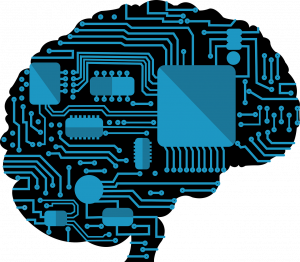Artificial intelligence (AI) is a rapidly growing field that is transforming the way we live, work, and interact with the world around us. From autonomous vehicles to virtual assistants, AI is already a part of our daily lives, and its impact is only set to grow in the years to come. In this blog, we will explore some of the latest trends in AI and their potential impact on our society.
-e1673704521390-300x298.png)
Potential impact on our society
Explainable AI
As AI becomes more prevalent in our lives, there is a growing need for it to be transparent and explainable. This means that people need to be able to understand how AI systems make decisions, especially when those decisions have significant impacts on individuals or society as a whole. Explainable AI is an emerging field that aims to address this issue by developing AI systems that can explain their reasoning in a way that is understandable to humans.
AI in healthcare
AI is increasingly being used in healthcare to improve patient outcomes and reduce costs. AI-powered tools are being developed to help doctors diagnose and treat diseases more accurately and efficiently, as well as to analyze large amounts of medical data to identify patterns and predict outcomes. AI is also being used to develop personalized treatment plans for patients, based on their individual health data.

Edge computing
Edge computing is a trend in AI that involves processing data locally, on devices such as smartphones or sensors, rather than in the cloud. This approach has several advantages, including faster processing times, reduced latency, and improved privacy and security. Edge computing is particularly important in applications such as autonomous vehicles, where split-second decisions are critical.
AI and ethics
As AI becomes more powerful and ubiquitous, there is a growing need to ensure that it is developed and used in an ethical and responsible manner. This includes addressing issues such as bias, fairness, and accountability in AI systems. There is also a need for greater transparency and oversight in AI development and deployment, to ensure that the benefits of AI are shared widely and that its risks are minimized.

AI and creativity
AI is increasingly being used in creative fields such as art, music, and literature. AI-generated art and music are already attracting attention and acclaim, and there is growing interest in using AI to help humans generate creative works more efficiently and effectively. However, there are also concerns that AI-generated art and music could replace human creativity, or that it could perpetuate biases or stereotypes.
Conclusion
In conclusion, AI is a rapidly evolving field with significant potential to transform our lives. As AI becomes more prevalent, it is important to consider its impact on society and to ensure that it is developed and used in an ethical and responsible manner. Explorable AI, AI in healthcare, edge computing, AI and ethics, and AI and creativity are just a few of the many trends in AI that are shaping the future of our world.
#AI #artificialintelligence #explainableAI #healthcareAI #edgecomputing #AIethics #AIcreativity #futuretech #innovation #technology #trendingtopics

